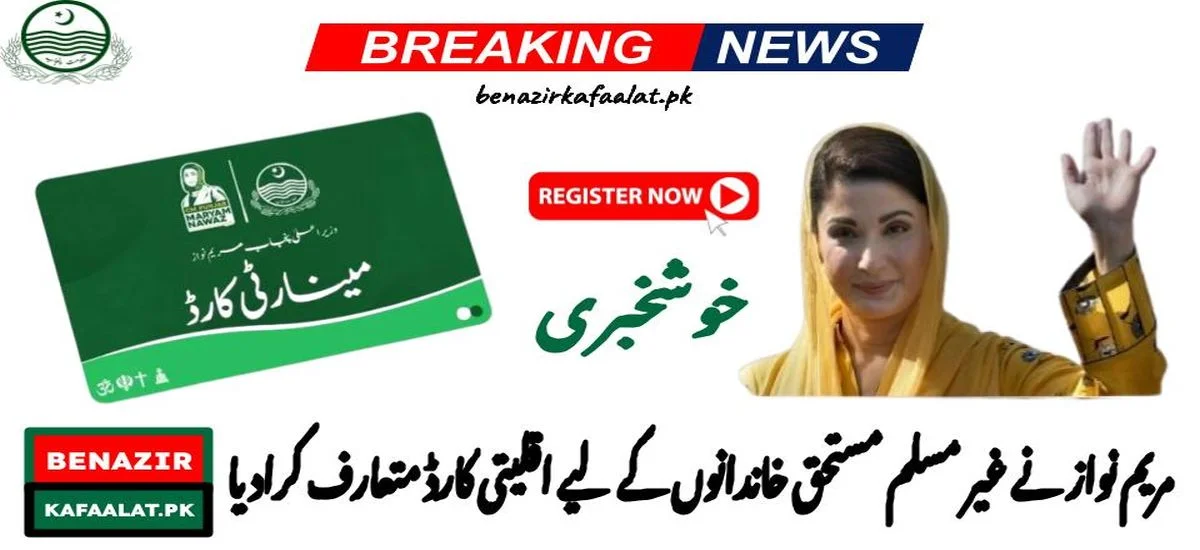Last Updated on: 1st November 2024, 07:32 am
Recently, Punjab Chief Minister Maryam Nawaz announced a new initiative to introduce minority cards that will empower non-Muslim families across Pakistan. The scheme will ensure these communities’ integral role in national development, and she has announced the distribution of Rs 150,000 to 1,400 minority families in Punjab.
Starting from December 20, families belonging to minority cards will receive Rs 10,000 per quarter. The Punjab government will soon release more details on the application process, so stay connected for updates.

Maryam Nawaz Introduces Minority Card for Non-Muslim Deserving Families
While speaking at a Diwali event in Lahore, CM Maryam Nawaz referred to minorities as a “crown on the head,” expressing her deep respect and strong commitment to their welfare. She said that this minority card scheme provides qualified families with Rs 10,000 every three months, thereby providing them with continuous assistance in meeting their needs.
Launching Date of Cash Cards for Minorities
Maryam Nawaz announced during her speech that Punjab will soon start the Minority Card Project, with a launch date of December 20 so that minorities feel safe in Pakistan. She celebrated Diwali with the Hindu community of Lahore and donated Rs 150,000 to 1,400 families on the occasion.
Expansion in the Number of Kisan Cards Distribution
At another ceremony in Hafizabad, Maryam Nawaz said that the Kisan Card distribution would increase from 5 lakh to 7.5 lakh farmers. They completed 11 major projects worth Rs 400 billion in just six months to support farmers. Farmers growing wheat on 12.5 to 25 hectares can now register for a free laser leveler by sending their CNIC number to 8070.
Last Words
The launch of the Minority Card is another step toward providing equal rights and support for non-Muslim communities in Punjab. With the quarterly cash disbursement of Rs 10,000 to eligible families, this initiative shows the valuable role of minority deserving families in Pakistan’s development and strengthens the government’s commitment to inclusion and equality.
